.svg)

.svg)
.svg)
.svg)
.svg)
.svg)
.svg)
.svg)
.svg)


.svg)
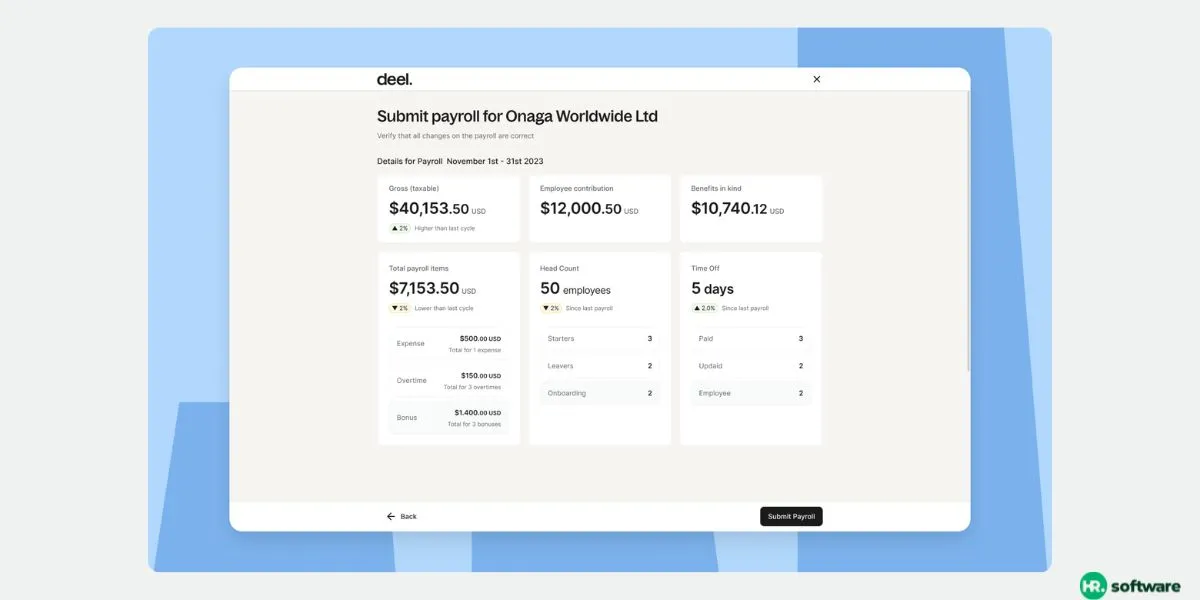
Deel streamlines global payroll and EOR services, handling compliance, multi-currency payments, and tax filing in over 150 countries. It supports both contractor and full-time employment models, with customizable contracts and automated legal compliance. Deel integrates with HRIS and accounting tools, and provides local benefits options in many jurisdictions. Its dashboard allows global visibility into costs, workforce, and payments. Designed for remote teams and fast-growing businesses.
Pricing: Custom quotes; higher for full EOR service.

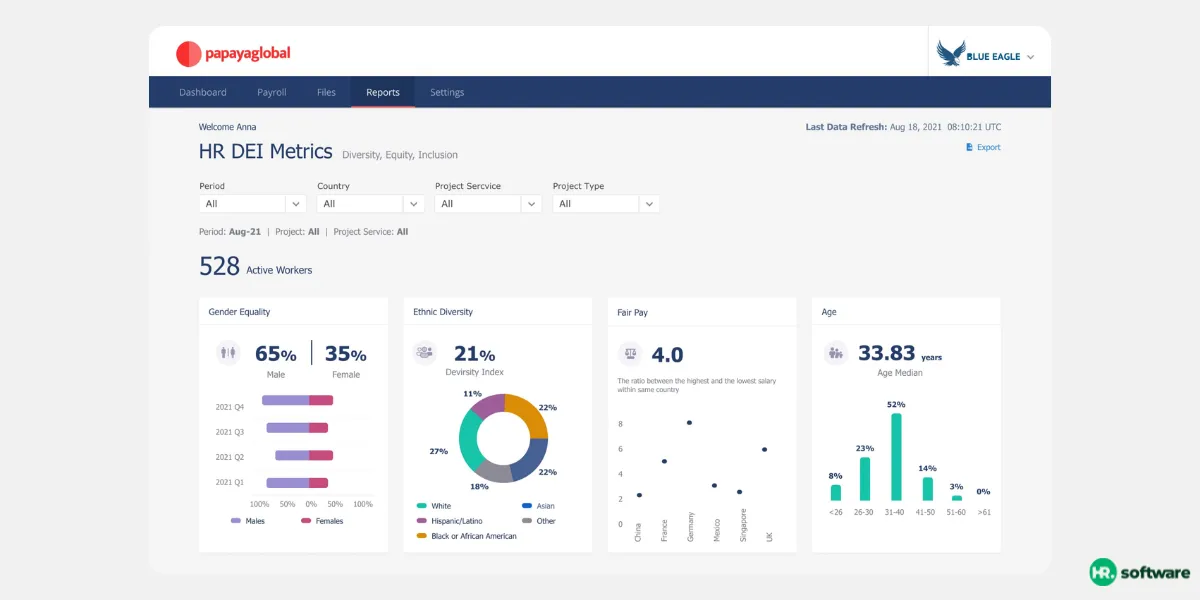
Papaya Global offers payroll and EOR for enterprises and SMEs, centralizing global payroll, contractor payments, and benefits administration. It supports dozens of countries, offering consolidated dashboards with real-time insights, unified data, and comprehensive compliance documentation. The platform includes time and expense tracking and integrates with HRIS and accounting software for seamless workflow. It supports audit-ready reporting and compliance automation. Papaya is built for medium to large businesses seeking centralized control and local compliance.
Pricing: Based on employees and services; custom.

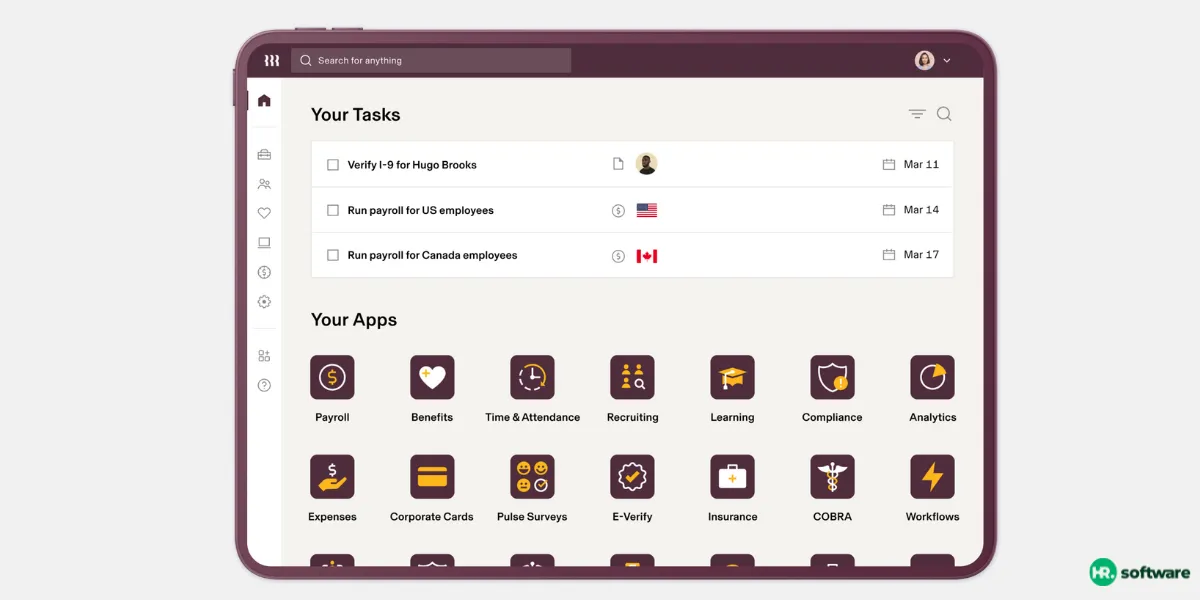
Rippling merges HR, IT, and payroll into one system, with global payroll expansion as a growing component. The platform supports employee and contractor payments, automated tax filing, and benefits management, all integrated with device provisioning and IT management. It connects with HR, finance, and productivity tools for seamless operations. Time tracking and expense management are built in. Rippling is ideal for companies seeking unified HR and IT workflows within a single platform.
Pricing: Modular; requires a custom quote.

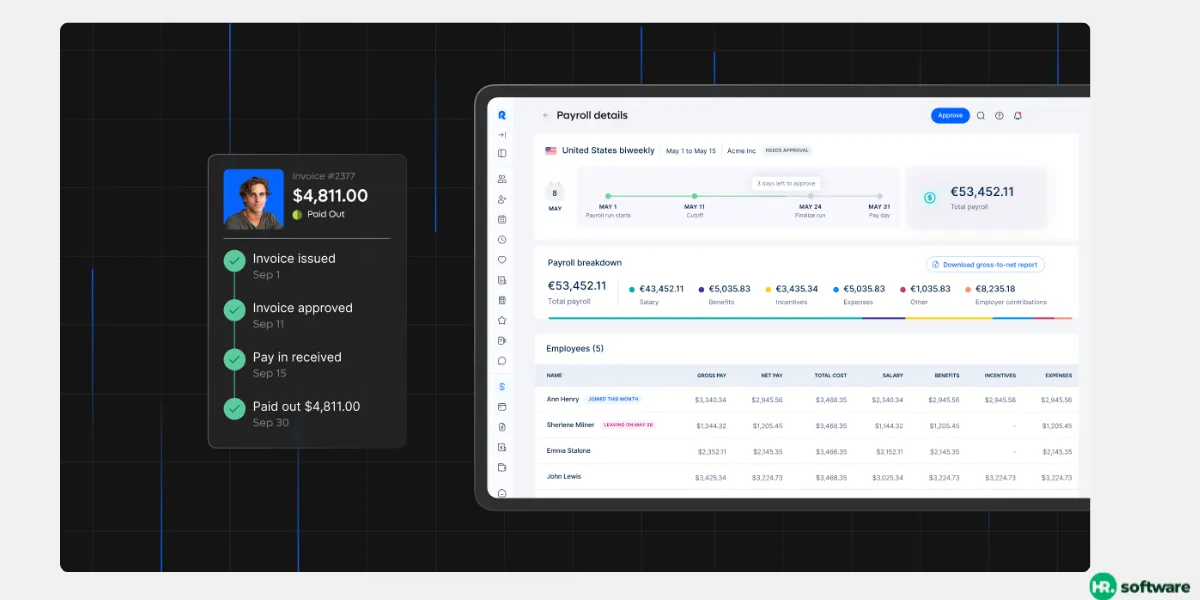
Remote specializes in EOR and international contractor payroll, making cross-border hiring compliance simple. The platform handles local entity formation, payroll processing, local tax filing, and benefits for full-time hires. It supports contractor payments and integrates with HRIS and finance tools. Onboarding tools and dashboards simplify management. Remote suits businesses with distributed teams that need fast, compliant onboarding globally.
Pricing: Fixed fee per country plus employee cost.

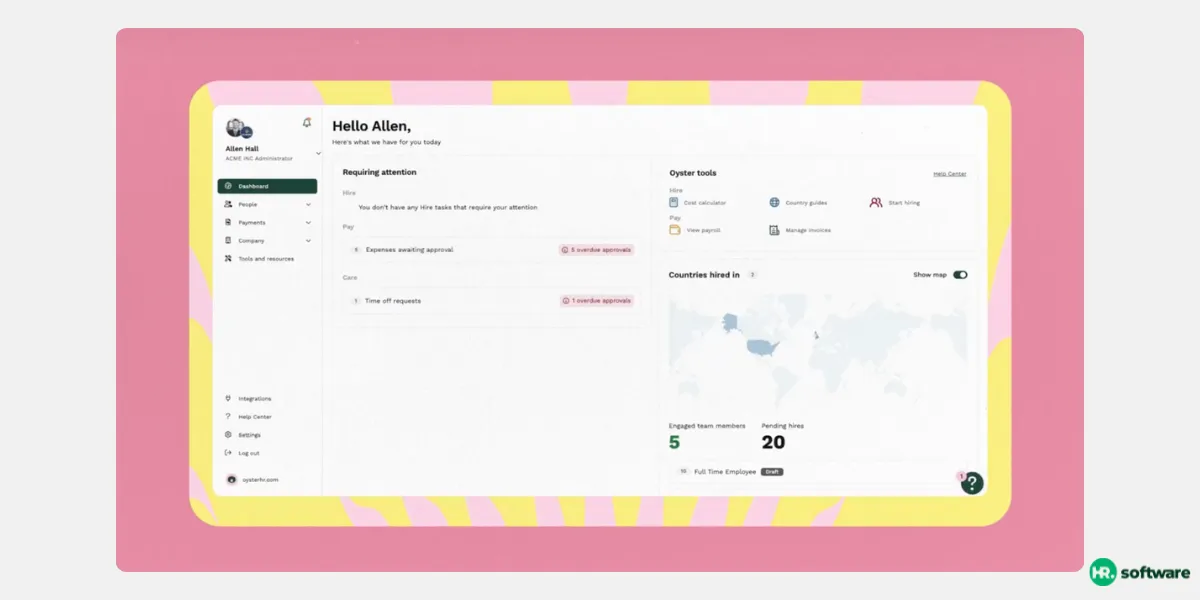
Oyster HR is designed for startups and scaleups, offering global hiring via EOR, contractor payroll, benefits, and compliance tools. Its intuitive UI provides onboarding checklists and documents, support for benefits and perks by country, and an API for HRIS integration. Oyster focuses on a friendly experience with transparent plans for smaller businesses. It offers global hiring in key markets with fast deployment and helps startups manage compliance without legal infrastructure.
Pricing: Tiered per-employee fees; transparent.

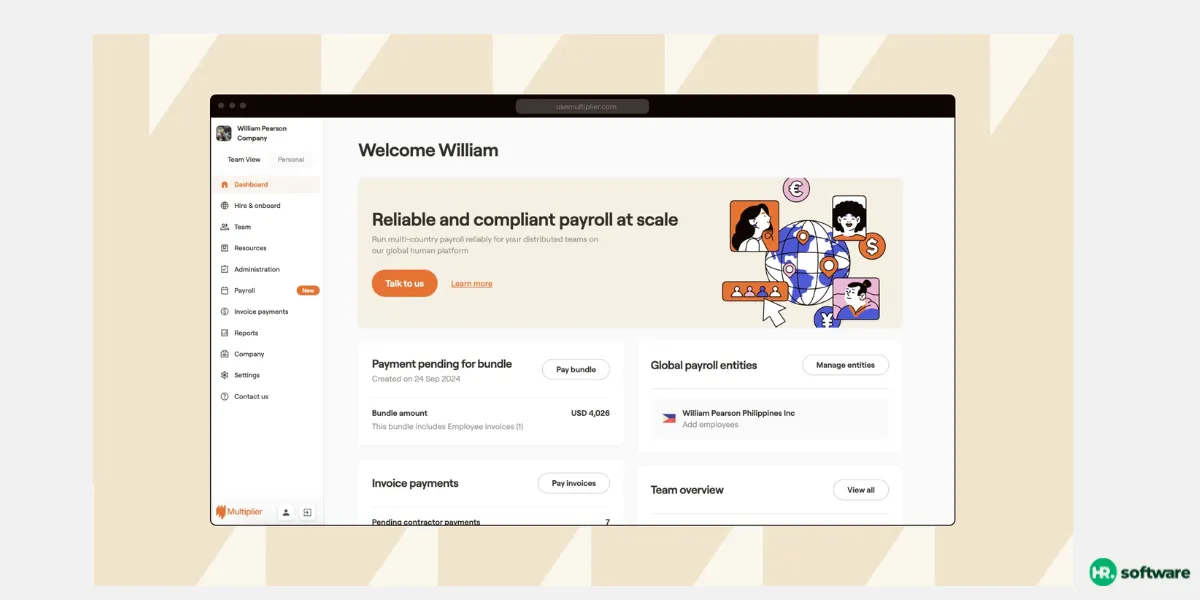
Multiplier delivers payroll, EOR, and contractor services, with strong presence in South Asia and APAC, expanding globally. It offers unified dashboards, employee self-service, and benefits administration. Features include integration with HR and finance systems and compliance across regional markets. Clear, per-employee pricing makes budgeting easy. Multiplier suits businesses expanding in Asia and beyond, prioritizing simplicity and transparency.
Pricing: Transparent per-employee model; varies by country.

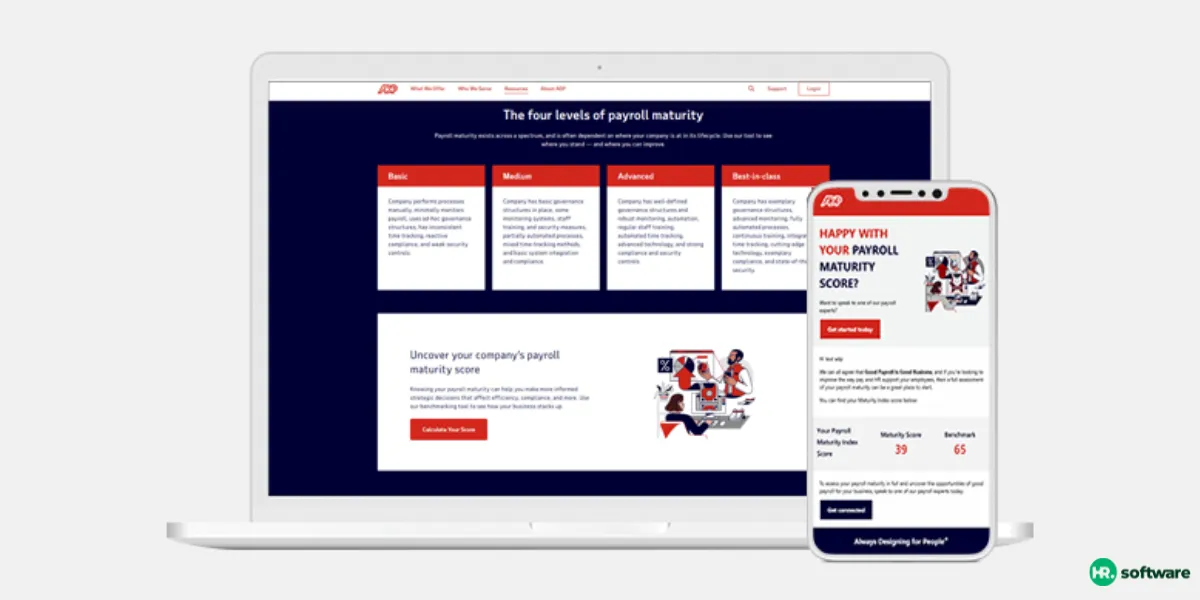
ADP GlobalView is part of ADP’s enterprise suite offering global payroll, compliance, analytics, and reporting. It supports multinational deployments with deep security and regulatory compliance, integrated with HRIS, benefits, and workforce management. The platform includes advanced analytics, global tax filing, multi-currency capabilities, and audit tools. It’s built for large enterprises needing scale, controls, and robust reporting.
Pricing: Custom enterprise contracts.

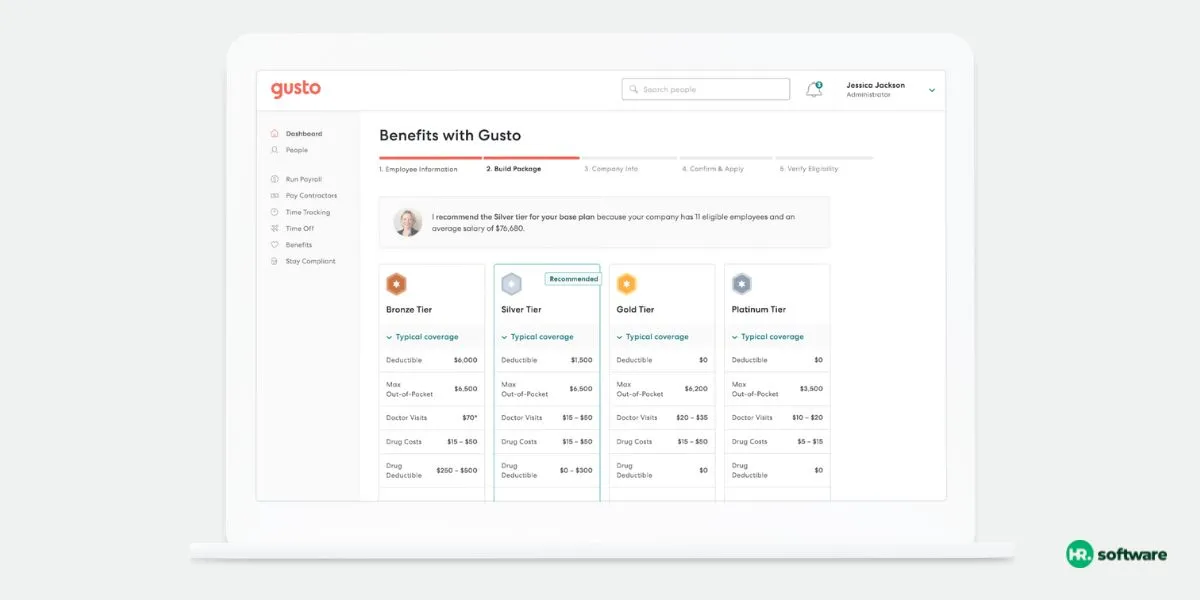
Gusto Global expands the familiar Gusto platform to contractor payroll internationally using partner networks. It blends Gusto’s user-friendly HR and benefits features with cross-border contractor payments. Users get a unified US and international view, simple dashboards, and standard compliance checks. Ideal for US-based SMBs already on Gusto wanting global contractor support.
Pricing: Add-on to existing Gusto plans; affordable.

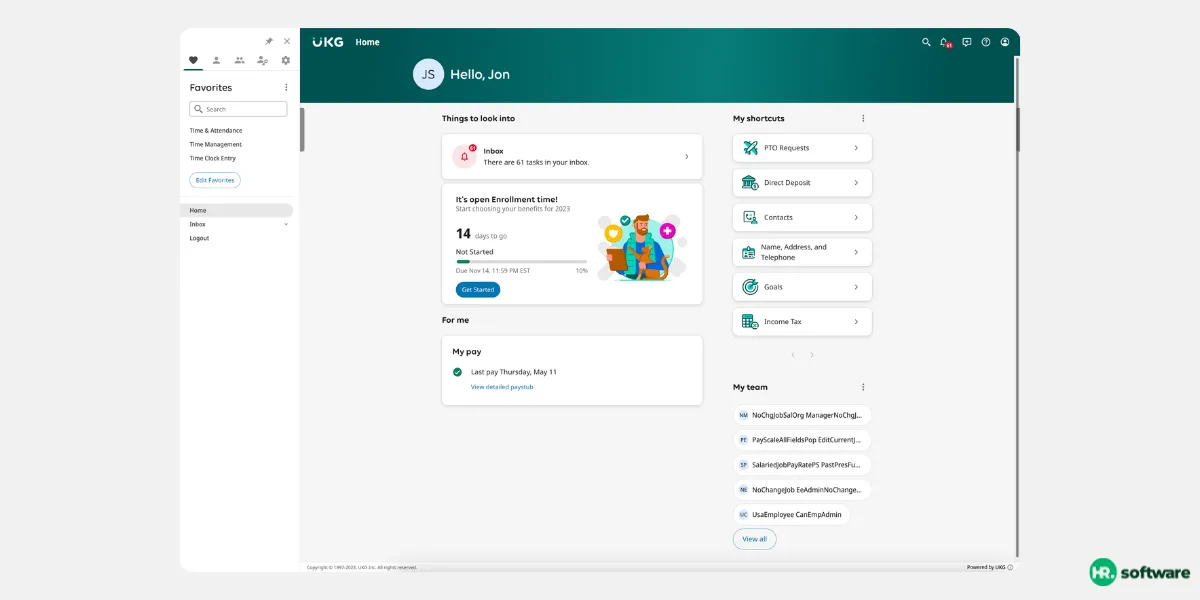
UKG via Immedis provides global payroll and compliance for mid-size and enterprise businesses. It focuses on regional expertise, localized payroll, multi-currency support, and audit-friendly processes. Seamless integration with UKG's HRIS delivers a unified user experience. The offering includes deep compliance knowledge, strong data security, and analytics capabilities. Ideal for enterprises using UKG for HR and seeking expanded global payroll.
Pricing: Custom enterprise agreements.
A global payroll platform simplifies the complex task of managing employee payments across multiple countries. By centralizing payroll processes, companies save time, reduce errors, and stay compliant with local laws. These platforms also improve transparency and give businesses the confidence to expand internationally without the burden of building local infrastructure.
Key Benefits:
The right global payroll platform depends on your company’s size, budget, and expansion plans. Smaller firms may prefer lightweight tools with transparent pricing, while enterprises need advanced compliance, analytics, and integrations.
Payroll platforms are evolving beyond simple payments to become full workforce management hubs. Expect AI, automation, and security to dominate future development.
Emerging Trends:
Global payroll platforms are vital for simplifying multi-currency payments, compliance, and worker classification across borders. The best platform depends on your company’s size, budget, growth trajectory, and integration needs. Shortlist based on regional support, features, user experience, and pricing transparency.
Then request demos and test core functionalities before committing. That approach helps you choose the most suitable solution to support accurate, compliant, and scalable global payroll management.
What is the difference between payroll and Employer of Record (EOR)?
Payroll simply processes pay for your workers. EOR takes legal responsibility for compliance, benefits, tax filings, and employment regulations in local jurisdictions where you do not have an entity.
Which global payroll solution is best for startups?
Startups may find Oyster HR, Gusto (Global), or Multiplier appealing due to their user-friendly interfaces, transparent pricing, and tailored small-team features.
What are the typical costs of a global payroll platform?
Costs vary widely. Many platforms charge per employee or per country each month. Some add flat fees for EOR or contractor services. Expect pricing from tens to hundreds of dollars per employee per month, depending on scope, plus setup and country fees.